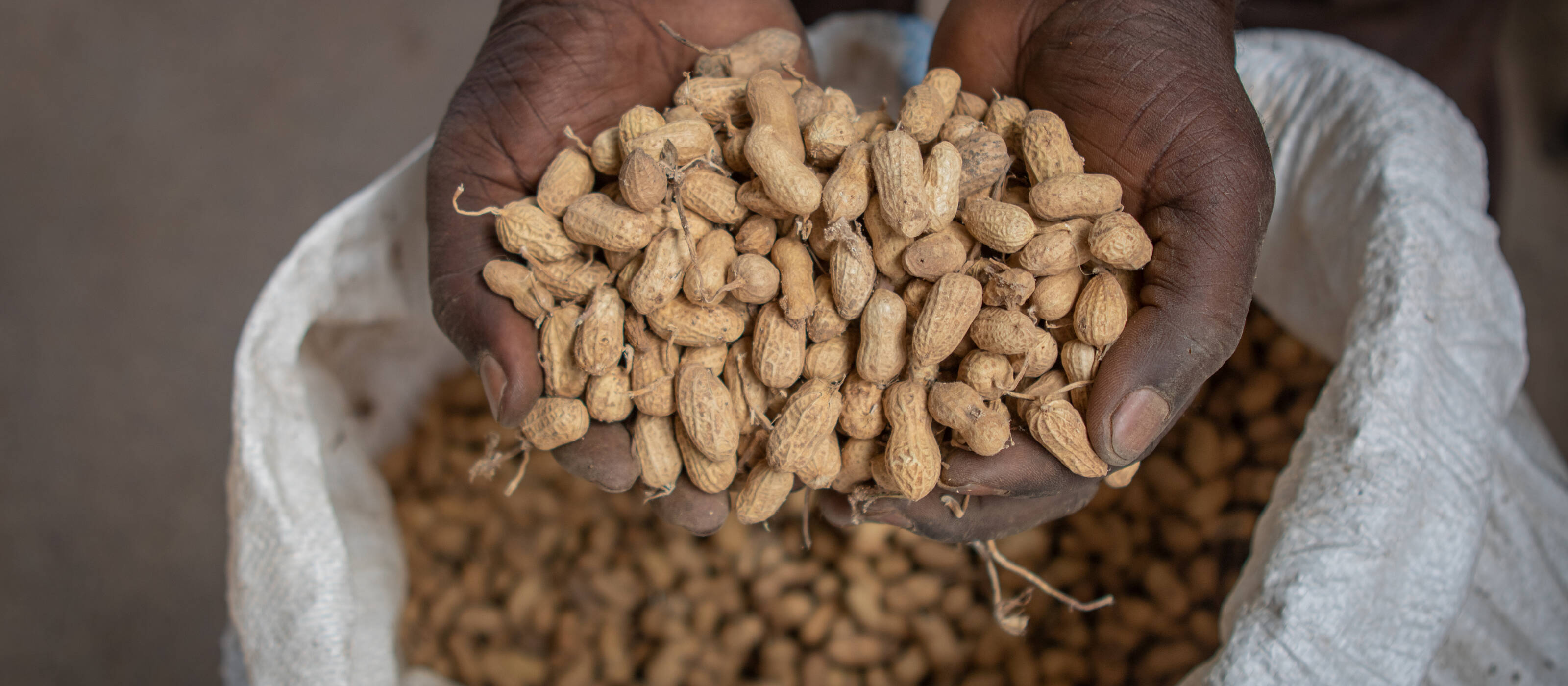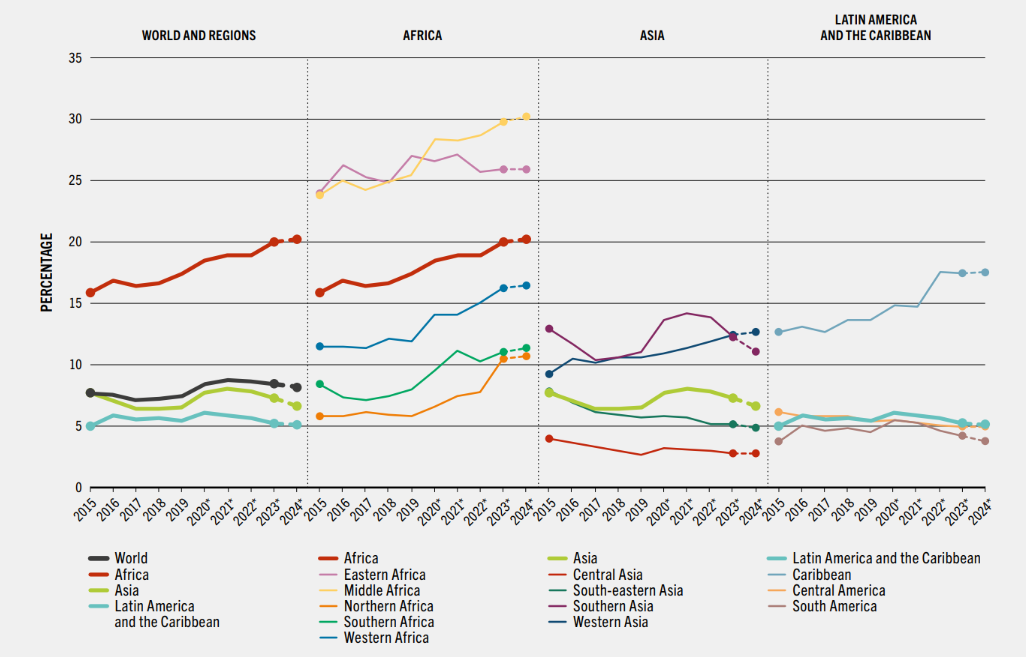

Global hunger is decreasing too slowly – millions remain undernourished
The latest UN World Hunger Report shows that approximately 673 million people worldwide were suffering from hunger in 2024. Despite improvements since the COVID pandemic, the global food situation remains alarming: progress is not sufficient to achieve the second goal of the 2030 Agenda for Sustainable Development, «Zero Hunger by 2030», especially in African countries.
Around 673 million people suffer from hunger. This means that 8.2 percent of the world's population is chronically undernourished. The recently published SOFI report (State of Food Security and Nutrition in the World) also shows that more than 2.3 billion people are affected by moderate or severe food insecurity.
Women, children, and the population of rural regions in particular are unable to feed themselves adequately. Although food security has improved in South America, Southeast Asia, and South Asia, it has deteriorated in West Asia and Africa.

The situation in most regions of Africa remains particularly dire: nearly 59 percent of the population experiences moderate or severe food insecurity. Food security has deteriorated further, especially in Burkina Faso, Niger, Chad, Mali, Somalia, Ethiopia, South Sudan, the Democratic Republic of Congo, and the Central African Republic. Conflict, the consequences of climate change, and fragile food systems are cited as the drivers of this trend.
The cost of a healthy diet has risen to an average of US$4.46 per day (adjusted for purchasing power) worldwide. This means that adequate nutrition remains unaffordable for many. Average global food price inflation rose from 2.3 percent in December 2020 to 13.6 percent in January 2023; in low-income countries, inflation was at times as high as 30 percent (as per May 2023). For 2.6 billion people worldwide, this is simply too much. In Africa, the number of people who cannot afford a healthy diet has risen to over 1 billion.
The health effects of hunger and malnutrition are serious:
- Although the number of children with stunted growth has fallen slightly worldwide, wasting and overweight among children remain largely unchanged at high levels.
- The rate of anemia among women has even increased.
A wake-up call for the global community
The report is a clear appeal to the global community: the world must do more to combat hunger and malnutrition. Political determination, international cooperation, and concrete measures are needed to move closer to the UN Sustainable Development Agenda's goal of ending global hunger by 2030. Food security must not remain a privilege.
The authors of the SOFI report advocate stabilizing markets to limit price fluctuations. They also emphasize the need to strengthen social security systems, especially with regard to women and children.
- In several regions where Caritas Switzerland is implementing projects to combat poverty, food security has deteriorated significantly – particularly in South Sudan, Gaza, Haiti, and Syria, but also in Ethiopia, Uganda, Burkina Faso, Mali, and Chad.
- In South Sudan, the Gaza Strip, and Haiti, a large part of the population has limited access to food due to a lack of financial resources and ongoing conflicts.
- In Ukraine, access to food and agricultural inputs remains severely restricted as a result of the war. This is leading to a global chain reaction that is affecting the supply of grain and fertilizers and resulting in a sustained rise in food prices.
Further information
Header image: Food security has also deteriorated significantly in Mali. © John Kalapo